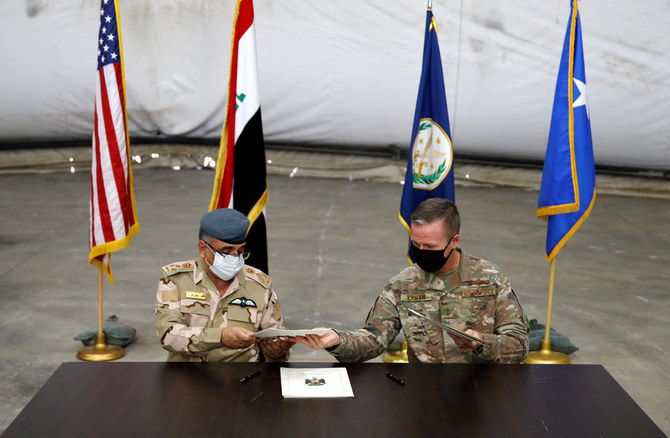Ongoing discussions between the United States and Iraq concerning the potential conclusion of the U.S.-led military coalition in the country are facing delays, and an agreement may not be reached until after the U.S. presidential elections in November, as per a statement by a senior Iraqi government official who spoke to Reuters anonymously.
The talks, initiated in January, aim to reassess the U.S.-led coalition in Iraq, which was formed in 2014 to combat Daesh following the extremist group’s seizure of significant parts of the country. The decision to engage in these discussions followed a series of tit-for-tat attacks between U.S. forces and Shiite armed groups amid regional tensions related to Israel’s conflict in Gaza. A month-long cessation of these attacks has allowed space for the negotiation process.
The Iraqi government, supported by Shiite Muslim parties and armed groups, seeks to prevent the country from becoming a battleground for foreign powers. The ongoing technical talks through a joint military commission are perceived by politicians as a means to navigate the differing opinions on the evolution of the military relationship between the two nations.
While hard-line Iraqi Shiite armed groups advocate for an immediate withdrawal of U.S. forces, more moderate Shiite factions, along with Sunni and Kurdish parties, express concerns that such a departure could create a power vacuum. Washington asserts that the coalition’s mission needs reevaluation post the Islamic State’s defeat in Iraq in 2017 but does not necessarily consider the talks as indicative of a complete withdrawal of U.S. military advisers from the region.
Former Iraqi Prime Minister Haider Al-Abadi, a moderate member of Iraq’s ruling Shiite Coordination Framework, stated last week, “I don’t think the Americans want a full withdrawal. That is clear. Also, I do not think there is an Iraqi desire among the political forces to dispense entirely with the Americans — even though there is a feeling today that their presence at this time causes more problems than solutions.”
